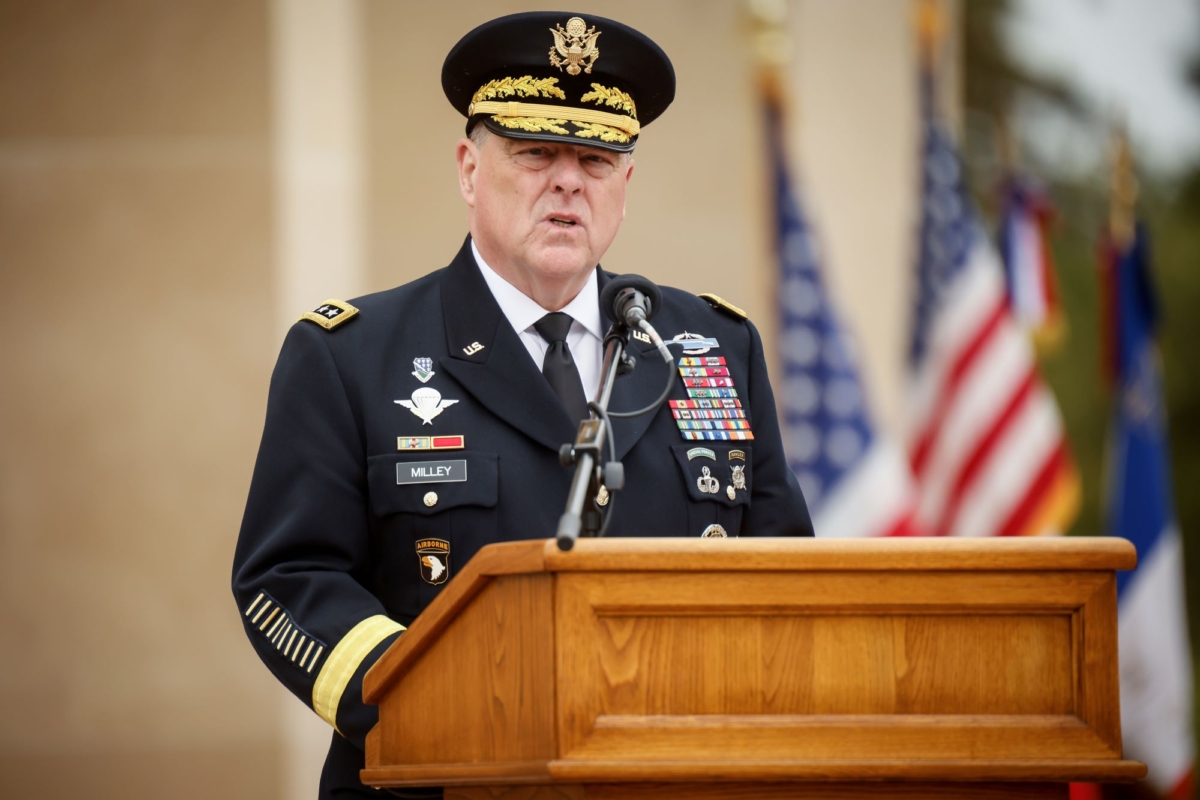The character of warfare—tactics, strategies, weapons—is constantly evolving, steadily developing more lethal technologies, and continuously reacting to the shifting churn of political challenges and geo-strategic threats.
Armed forces that can swiftly, effectively incorporate technological advancements into war-fighting tactics will dominate the battlefields of the future, just as they always have, U.S. Joint Chiefs of Staff Chair Gen. Mark Milley said.
Those that don’t, he said, will suffer the same fates as Western European nations did when the German military blended technologies into combined-force tactics to unleash a new type of “blitzkrieg” warfare that overran much of the continent in a matter of weeks.
Speaking June 30 at a National Press Club Headliners Luncheon in Washington, Milley said the nation’s armed forces must adapt to “the most significant fundamental change in the character of war ever recorded the history” by training to fight a war unlike any other waged before.
“Perhaps the biggest change is the rapid onset of artificial intelligence and quantum computing,” he said. “In fact, in the next 10 to 15 years, we’re likely to see that at least one-third of the advanced industrial militaries of the world will be robotic. Think of a pilotless air force or a sailor-less navy or crew-less tank.”
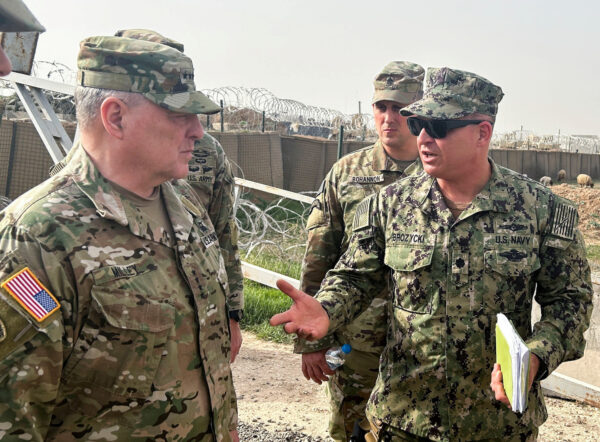
Sun Tzu to Clausewitz
Milley, frequently quoting from Prussian theorist Gen. Carl von Clausewitz’s 1832 book, “On War,” and Sun Tzu’s 2,500-year-old “The Art of War,” was likely making his last appearance before the National Press Club as the highest-ranking officer in the United States military.
His 44-year career in the U.S. Army and a four-year stint as chairman of the Pentagon’s Joint Chiefs of Staff ends with his Oct. 1 retirement. In his remaining three months, the four-star general, who rose through the ranks as an armor—tank—officer, is likely to repeat his call for sustained modernization in a summer of speeches.
Milley did not refer to, nor was he asked about, his entanglements with former President Donald Trump during the 19 months he was Joint Chiefs chair under the Trump administration.
He did not mention the “secret” plan to attack Iran he allegedly drafted that Trump was referring to—but claims he didn’t actually have—in the July 2021 recording at his New Jersey golf club that is cited among the 37 felony counts lodged against him for purportedly mishandling classified documents that he should not have had after his presidency.
Milley’s post-presidency bark-to-bark banter with Trump—he claims in the waning days of his administration, he thwarted the former president from launching a massive attack on Iran—has relegated him to the highest pantheon of MAGA enemies along with Hillary Clinton, Anthony Fauci, and Christopher Wray, among others.
Nor did he discuss the House Republican uproar over diversity, equity, and inclusion training and other “woke” policies in the military that conservatives say are contributing to recruiting shortfalls and impairing readiness.
What Milley did talk about was typical of a leader leaving an organization he’d been part of for five decades, including a final post so consuming, he has no idea what he’ll do when he wakes up Oct.1 and is longer an active-duty soldier.
“Literally, I have not had time to figure all that out,” he said, noting he and his wife “don’t even know where we are going to live.”
One thing is for certain, Milley said. He has “zero” interest in politics and will “absolutely not” seek any type of public office.
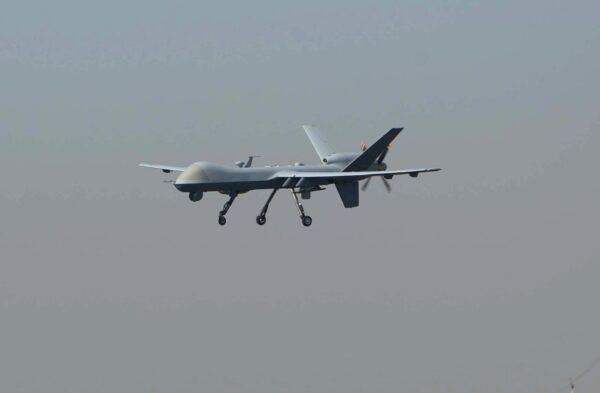
Today’s Decisions, Tomorrow’s Wars
“The nature of war, Clausewitz tells us, is not likely to change. It’s a human interaction. It’s a political act, where one side is trying to impose its political will on the other side, to the use of organized violence. It involves fear and friction, confusion and death,” Milley said.
But the character of war changes often, he said, with contemporary technological advances posing exponential upheaval that will reward those who can adapt and incorporate them the fastest and doom those that don’t.
“Right now, currently, we are in that midst” of a sweeping fundamental change in the character of war, Milley said, with decisions being made right now the keys to winning wars in the future or, in the best scenario, deterring them from happening in the first place.
“The basics of war haven’t changed. You have to see and shoot, move, protect, and sustain, and communicate,” he said, but technology provides new capacities and capabilities.
“Today, unlike at any time in history, we are in an age of incredible ability to surveil. We have the ability to see and sense the environment, like at no previous time,” Milley said. “We have the ubiquitous ability to see anywhere on the globe at any moment in time. And we can do that with incredible precision.”
That “ubiquitous ability to see” means every inch of Earth—from the bottom of the seas to the stars to the National Press Club ballroom—is now a battlefield where war is already being waged.
“Think about all the sensors that are in this room,” Milley said. “Right this minute, every GPS watch, every iPhone, every Fitbit, all of them” can be monitored and used by military planners. “Our ability to see and sense the environment is unprecedented in what you can see.”
This makes what Sun Tzu wrote three millennia ago more true now than ever, he said.
“Sun Tzu tells us, ‘See yourself and see the enemy and you’ll win one thousand battles.’ Well, artificial intelligence and quantum computing are going to do exactly that,” Milley said. “We will be able to see ourselves and see the enemy in much more significant ways than we can now.”
AI, quantum physics, and robotics mean “the battlefield of the future will require rapid and constant movement and the ability to remain small and relatively invisible, just to survive,” he said.
“Artificial Intelligence will be able to process complex information at speeds that no human mind can match,” Milley said. “So our task, the United States’ task, is for our military, the United States military, to maintain our current decisive advantage, or lethality, or readiness, or competence, by optimizing these technologies for the conduct of war. And we do this not to conduct war, but to deter great power war.”
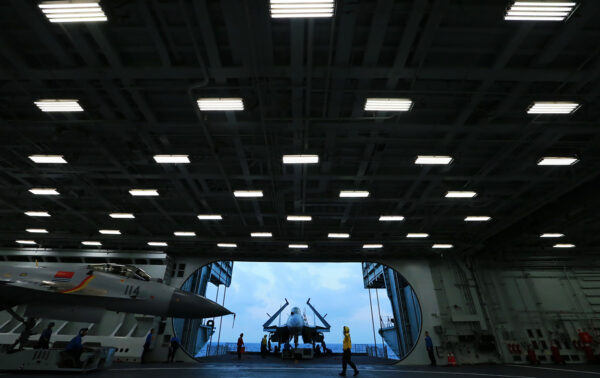
Planning For War With China
Milley did not directly address plans to counter Western Pacific aggression by China’s rapidly expanding, sophisticated military in his speech but responded to questions about the threats posed by the Pentagon’s top “pacing challenge.”
Asked if the Department of Defense’s (DOD) military modernization plans can foil China leader Xi Jinping’s campaign to field a military superior to the United States by 2027, Milley said only time would tell.
“Is the [United States] running out of time to modernize? I do think that we have to go quickly but ‘running out of time,’ I think, is relative,” he said. “But I think the United States military needs to accelerate our modernization, and it’s not just the military [that must master] the acceptance of the idea of future war.
“If we, the military, don’t adapt ourselves, our doctrine or tactics or techniques or leader development or training and talent management, we don’t do that, then we won’t have a military that’s capable of operating in that future operating environment that is coming,” he continued. “Whether people like it or not, it’s coming. So you have to prepare for that. And that’s going to require a significant change.”
The PRC has been doing this for years, Milley said.
“China is looking to rewrite” the rules, or character, of war, he said. “China’s economy has been growing rapidly for the last four decades, as we all know, and is now leveraging their financial power to build up an incredibly powerful military. They’re willing to do that. China’s actions and public speeches make it clear. They’re not ambiguous about it. China wants to be the regional hegemonic in Asia within the next 10 years, and they want to [replace] global U.S. military power by mid-century.”
How this pans out will determine “the geo-strategic history of this century,” Milley said, before noting military planners in the Pentagon and in Beijing are warning their governments that the cost of “winning” such a war would be catastrophic.
There are off-ramps to conflict, he said, reiterating that war between China and the United States is “neither imminent nor inevitable.”
Gen. Milley noted while Chinese leader Xi Jinping “has stated publicly that he has challenged the People’s Liberation Army to develop the military capability to unify Taiwan with China by 2027, he didn’t say, ‘I just I’ve decided to attack and invade.’ He said, ‘You generals, you develop the capability to do that. We’ll make the decision later.’ But he didn’t say he would do that. So there’s a tension, the decision-making process which still have to occur, and that’s what I’m getting at with the idea of deterrence.”
And that idea is this: “You want to make sure that every single day President Xi wakes up and says, ‘It’s not that day.’ That decision never comes and that’s the whole essence of deterrence,” Milley said. “So the faster we can retain superiority, then, I believe, the theory of the case is that we are more likely to deter war from happening and if forced to fight, the [United States] will prevail over any opponent.”
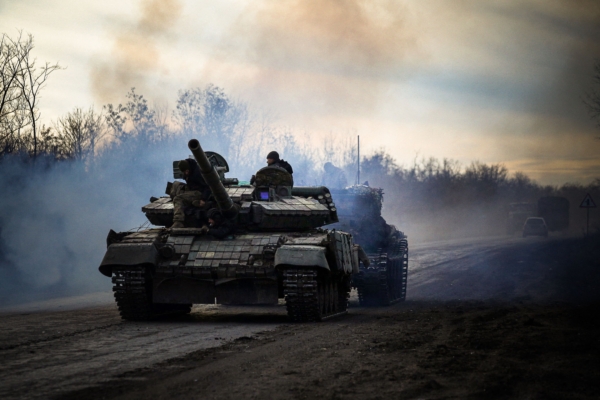
Defending Ukraine’s Ability to Defend Itself
In his speech and in ensuing audience questions, Milley reiterated the Pentagon’s view that Vladimir Putin’s invasion of Ukraine is an egregious assault on the post-World War II “rules-based international order,” which has prevented a “great power war” for nearly 80 years.
“Our task is to ensure that Ukraine has the support it needs to remain free and independent. And we’re doing that in order to make sure that rules based international order holds,” he said.
Milley said criticism from some who say Ukraine’s counter-offensive as taking too long and not producing enough results to sustain support for Kyiv is premature, especially since it is still in an early stage.
“A war on paper and real war are different. In real war, real people die. Real people are on those front lines. Real people are in those vehicles. Real bodies are being shredded by high explosives and so on and so forth,” he said. “So when a computer tells you you’re going go this fast, maybe real war might slow [those projections] down a little bit” since most involved are trying to avoid being killed.
But many are going to be killed, and soon, Milley said.
“It’s going to be very long, and it’s going to be very, very bloody, and no one should ever have any illusions about any of that. Ukraine is fighting for its life. It’s an existential fight for Ukraine, and they are fighting against a very significant country of 140 million people, nine time zones, a big army, lots of munitions and so on and so forth”
“Ukraine is fighting for their life,” he said. “We are giving him as much help as humanly possible. But at the end of the day, Ukrainian soldiers are assaulting through minefields and in the trenches, and this is literally a fight for their life. So yes, if it goes a little slow, that is part of the nature of war.”










































